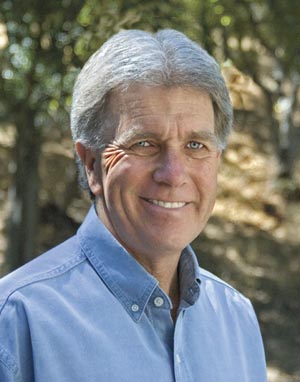Getting Out: Make no mistake. On Nov. 2, we have the rare
opportunity to save California’s 278 state parks forever and give a
gift that will last for generations.
Make no mistake. On Nov. 2, we have the rare opportunity to save California’s 278 state parks forever and give a gift that will last for generations.
State parks, like education, are not simply a budget item. The way we support such things is a measure of our values as a society. Future generations will judge us by such choices. During the depths of the Great Depression, 71 percent of the voters in Berkeley and Oakland created the East Bay Regional Parks District, the first of its kind in the nation. They chose to impose a tax on themselves to save threatened forests when times were toughest. That’s visionary.
I don’t have the space here for a full discussion of Proposition 21, but its biggest hurdle is probably the T-A-X word. While we are all frustrated by high taxes and wasteful government spending, we can’t let a knee-jerk response blind us to the result of a careful cost-benefit analysis. For an annual $18 surcharge on your vehicle registration, you will receive free day-use for that vehicle (state parks charge by the vehicle) at all state parks. Compare this amount — about the cost of five cafe lattes — to the cost of a two-hour movie, a single green fee, a single lift ticket or dinner out. This $18 isn’t for a single event. It covers your state park day-use fees all day everyday for one year.
And it does something more important. It fully funds state parks and forever removes them from the crazy and uncertain budget process. Keep in mind that recent park closures and service cutbacks were only the latest in a long line of funding cuts. Parks have been underfunded for a generation. There is currently $1.3 billion of deferred maintenance that you can bet the legislature will never fund. Funds from Prop 21 will go into a trust fund that will be audited by the State Auditor every year and cannot be raided by the legislature for any other purpose.
Call it a tax. Call it a fee. Call it a surcharge. I don’t care. Where else can we do all this for $18? It’s visionary.
“But I don’t use parks,” some say, “so why should I pay?” Here is where we decide what is important to us. There are many things we pay taxes for that we don’t receive a direct benefit from, but we support them because we think they are an important part of a better world. We may not use public libraries or have children in public schools, yet we pay for them because we know they are important. But if you insist on a direct monetary benefit, consider this: The 80 million annual visits to state parks generate $4.32 billion in expenditures that flows into the surrounding economies, which, in turn, creates revenue for the state. For every dollar the state spends on parks, $2.35 comes back to California’s treasury.
Edward Abbey said, “Wilderness is not a luxury but a necessity of the human spirit.” Whether you ever visit some of the empty spaces on the map, there is comfort in knowing they are there. In the final analysis, your decision whether to support parks will probably rest on whether Abbey’s idea stirs you. I hope it does. Parks set aside beautiful places where we can seek peace in a busy world.
What is important to us? What do we value? Four hundred and fifty organizations across all interests — business, faith, public health, ethnic groups, education — have come out in support of this measure. Let’s seize a rare opportunity to do something that will benefit the generations that will follow us. Be a visionary and support Prop 21.










